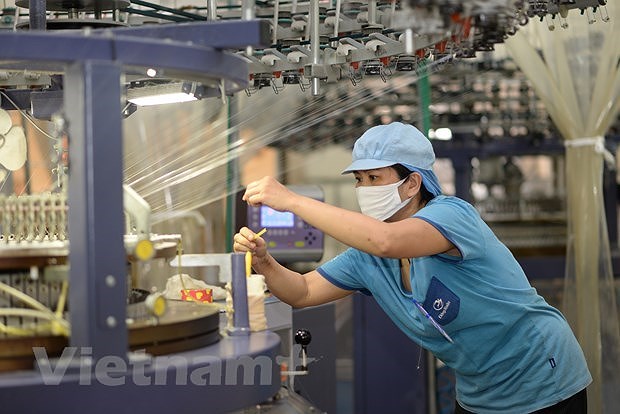Prof. Tran Van Tho, a former lecturer at Japan’s Waseda University suggested several measures for Vietnam to achieve sustainable economic development in the next period in an interview recently granted to a Vietnam News Agency reporter in Tokyo.
 Illustrative image (Photo: VNA)
Illustrative image (Photo: VNA)
Tokyo (VNA) - Prof. Tran Van Tho, a former
lecturer at Japan’s Waseda University suggested several measures for Vietnam to
achieve sustainable economic development in the next period in an interview
recently granted to a Vietnam News Agency reporter in Tokyo.
Tho, who is also a member of the Prime Minister’s economic advisory
group, said the past five years could be said to be the best period during Vietnam’s
35-year Doi Moi (renewal) cause.
He cited an average growth of nearly 7 percent each year,
along with stable macro-economic indicators such as inflation, public debt and
unemployment rate.
Last year alone, Vietnam still posted a positive growth
while others reported negative economic expansion amid the COVID-19 pandemic.
According to the scholar, Vietnam’s most impressive
achievement was in external economy with rapid export growth. The country has become
the second largest exporter in ASEAN, leading to improved trade balance.
Regarding the 13th National Party Congress, Tho stressed
that as Vietnam is going to enter a new development period with major changes in
growth quality, social resources should be further tapped to meet development
requirements.
In the face of great opportunities and challenges ahead, he
said Vietnam’s new leadership should catch up with the new national and global
developments, and take sound policies, especially in attracting and using talents.
About sustainable economic growth goals for the next five
years, Tho described restructuring and related policies as the most important,
especially labour and business restructuring.
In labour, with 35 percent of the labour force still working
in agriculture with low productivity, he proposed channeling labour from agriculture
to industry and services through stepping up industrialization.
As for the structure of businesses, SMEs and households
businesses still account for a large proportion in the economy, so there should
be policies to improve capital and land market, and actively help small and
medium-sized enterprises to grow in size.
The scholar also pointed to the instable structure of
foreign trade. He suggested in the next five years, Vietnam should hasten
industrialisation to ease its reliance on imports from China and the Republic
of Korea, and diversify export markets.
He said Vietnam needs a wiser strategy in attracting foreign
investment and technology. According to him, domestic enterprises should be
stronger so as to be able to become partners of foreign firms, especially those
working in high technology./.